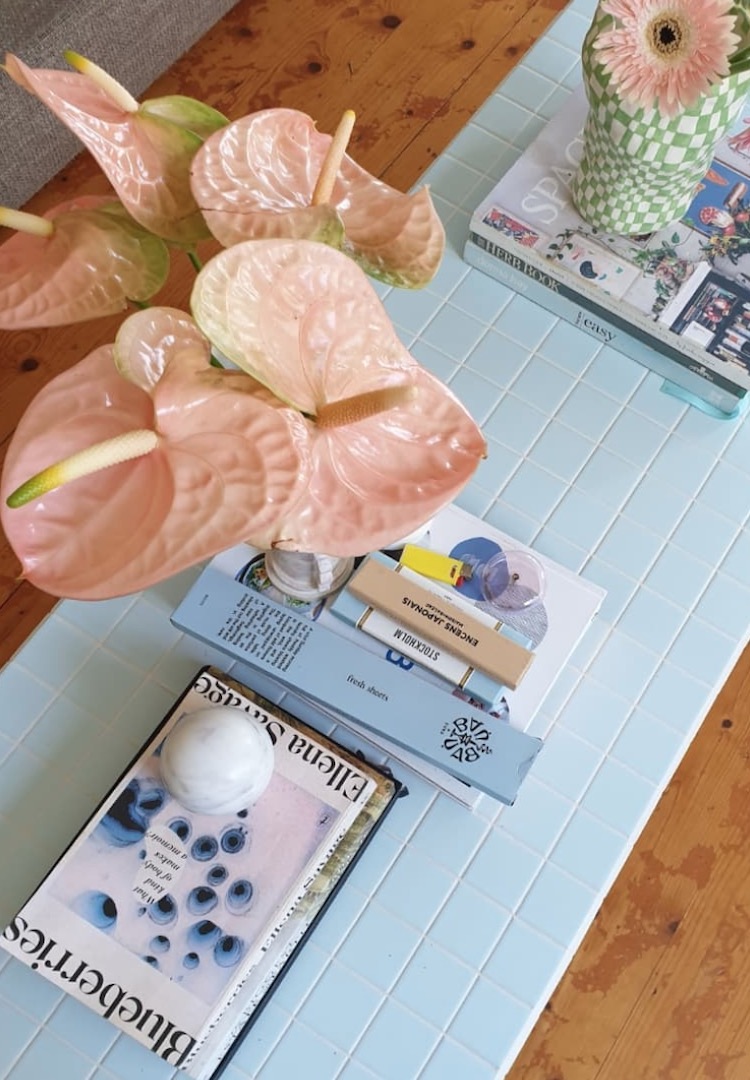A rookie’s guide to setting a budget
IMAGE VIA @LINNEKLUND/INSTAGRAM
WORDS BY IZZY WIGHT
Future you will thank you for this one.
Your twenties are strange, for many reasons. It feels like half of your friends have mortgages, ‘proper jobs’ and babies on the way; while the other half only recently bought bed frames, got kicked off the family’s health insurance and stopped blacking out on the weekends.
At 24, I’d like to think I appropriately straddle between the two – I have a partner, rent a sharehouse, own a bed frame and haven’t blacked out super recently. It’s only up from here. As much as I love my semi-hedonistic lifestyle and lack of mortgage, we live in a society and all want more money.
We bring you new career advice each week. Find it over in our Life column.
I dream of coming to the end of my pay cycle with a little extra in my savings account and the budget to go out for an end-of-the-week wine if I please. The starving-artist-two-minute-noodle novelty wears off pretty quickly, unfortunately.
I’ve never made a budget. Instead, I chose to clunkily navigate my income by throwing it at different areas of my life and hoping it stuck. After a lifetime of ignoring all financial advice, I’ve enlisted Victoria Devine to help me change my ways. She’s an author, award-winning financial adviser, director and co-founder of Zella and the host and founder She’s on the Money.
So it’s about time I made a budget. What do I need to know before I start?
Deciding to set up a budget really is the first step to financial freedom, so a big pat on the back to you! In terms of what you need to know before getting started, the biggest piece of advice I can give you is that a budget is not designed to be restrictive. It’s not a list of rules about what you can and can’t spend your money on with tight restraints on your spending.
A budget is a tool to help organise your finances and make sure you are kicking savings goals while still being able to buy that Ganni dress you’ve had your eye on for months now. Budgets aren’t restrictive, they’re empowering and I think reframing that narrative a little before we jump into creating a budget is really important.
What if my income is more sporadic, is it worth making a budget if my income is messy?
A messy income is a budget’s best friend! A budget is really just a roadmap to help you keep your finances in order and on track to achieving your financial dreams! Maybe you’re a freelancer whose income fluctuates week on week, maybe you’re a seasonal worker or a student who may endure big chunks of time with no income.
A budget will help you weather those periods by helping you allocate your income appropriately when it’s there. So many people avoid creating a budget when they have a sporadic income because it’s something they’ll “just sort out later”, but the reality is setting ourselves up with a budget and goals makes managing money far less stressful – I promise you won’t regret it!
What are the common pitfalls and how can I avoid them?
Shooting too high with our goals is a really easy way of sabotaging our savings and falling off the budgeting bandwagon. Why? Well, say you earn an entry-level salary of $47k a year and you live out of home – for you, setting yourself a savings goal of putting away $40k in a year simply isn’t feasible.
People often start a budget with a really restrictive mentality and then when they fall down because they can’t sustain that lifestyle, they beat themselves up and might make themselves feel better with a little retail therapy. This is such a trap because restrictive behaviours (just like diets) often lead to negative results. Set attainable goals, yet ones that still require discipline.
View this post on Instagram
Are there any apps or resources that are helpful?
There are so many free resources out there now which make life much easier when it comes to understanding your money and how to budget. A little bit of self-promo here – the She’s on the Money podcast is a super easy listen and is brimming with finance help that won’t put you to sleep. Similarly, My Millenial Money is another ripper money podcast that takes hard-to-understand money concepts and makes them digestible.
The government’s Money Smart website is also a wealth of knowledge and has a budgeting tool that is really easy to use. Finally, apps like Get Reminded, Splitwise and Pocketbook are all really good for staying on top of how your finances are tracking!
Can you break down the key steps to success?
Step one: Understand your money story
Take some time to reflect on your relationship with money. Often the way we are with money has a lot to do with the way we were brought up. Maybe you grew up in a frugal household so you find it really hard to spend money. Maybe your parents were big spenders so you find yourself regularly spending much more than you can afford.
Whatever your story is, it doesn’t define you, but it may give you an understanding of the way you treat money and from there you’ll be better able to create your goals and see which of your money behaviours need the most attention.
Step two: Set goals that are achievable
Realistic goals are great goals. We don’t want to shoot for the stars only to fall short and feel rotten about ourselves. If a key driver for your budget is to save for a house deposit, then set short-term, smaller goals, like putting away a certain percentage of your income each month and into your ‘house deposit bucket’.
This is much more attainable than saying “I want to save $80k in two years”. You’d never eat an elephant in one bite (it would never work), so let’s break our finances down and set smaller, bite-sized goals that we can tick off and celebrate along the way.
View this post on Instagram
Step three: Ditch the buy now, pay later
This is less of a budgeting rule, but I promise it will help keep you on track. Buy now, pay later (BNPL) providers like to make you think they are doing you a huge favour by giving you access to items you can’t afford, but the truth is they’re setting you up to fail by giving you access to items you can’t afford. We don’t want to live a life without treats but it’s important we factor them into our budget, instead of relying on lines of credit – which is what BNPL is – which often lead to debt and money anxiety.
Step four: Monitor your progress and adjust as required
It’s important we check in with our progress along the way to see if there are any adjustments we can make to our budget. Have we realised that our goals were a little too ambitious? Maybe they weren’t ambitious enough? Whatever the situation, let’s tweak our plan and keep on working! These budget check-ins (I love a monthly check-in) are a great time to pat yourself on the back for nailing goals, which definitely helps to keep you on track and feeling inspired.
Anything else I should keep in mind?
Remember the road to financial freedom is a long game (sorry about that) but if you stick to your plan and set yourself challenging yet achievable budgeting goals, then you’ll be well on your way to setting yourself up financially.
For more financial wisdom, you can get your copy of the She’s on the Money book here.













